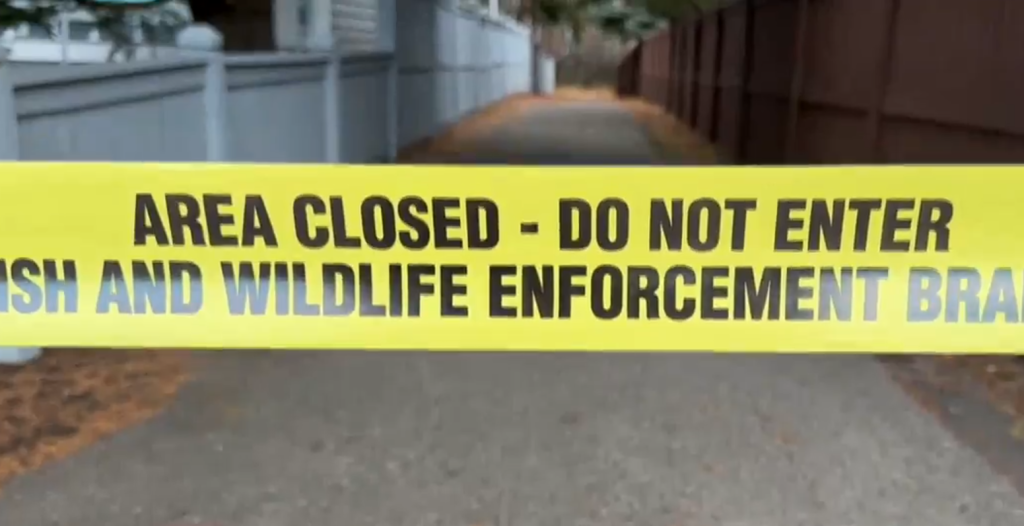Expat Americans in Canada gear up to weigh in on Democratic primary race
Posted Mar 1, 2020 1:05 pm.
Last Updated Mar 1, 2020 1:37 pm.
WASHINGTON — Even though they live in Canada, expatriate Americans north of the border are gearing up to weigh in on the Democratic nomination on Super Tuesday and beyond as the battle to challenge Donald Trump appears poised to morph into an ideological battle between Joe Biden and Bernie Sanders.
Of the estimated 3 million voting-age U.S. citizens living outside the country, Canada is home to the most in the world: more than 622,000 in 2016, says the Federal Voting Assistance Program. Of those, however, a paltry 5.3 per cent cast a ballot in the election that propelled Trump to the White House.
Democrats Abroad, the party’s official international wing, aims to change that in 2020 beginning with the primary race, which shifts into high gear this week with 14 states, one territory and expat voters around the world eligible to weigh in on their preferred nominee.
The Democrats Abroad Global Primary, which runs March 3-10, allows voters in 190 countries, representing every state and congressional district in the U.S., to cast ballots. The results will send 13 delegates to the party’s national convention in July, along with the eight Democrats Abroad members of the national committee. Some 19 polling stations will be set up across Canada, the bulk of them on Tuesday.
The numbers pale in comparison with the bonanza available to candidates on Super Tuesday itself — 1,357 delegates from 14 states and one territory, including California and Texas, the two biggest prizes of primary season. But every vote counts, especially in a delegate-based system, said Liz Olin, a Sanders supporter and member of “Toronto for Bernie,” a group actively drumming up Canadian support for the independent senator from Vermont.
“Reaching U.S. citizens in Canada is of great importance … many people we talk to don’t realize they can vote or have never heard of the Democrats Abroad primary,” Olin said. “Because the voting rate is typically so low, each vote in the global primary can have a significant impact — often around four times the impact of a vote in a state’s primary.”
In a recent online survey by the Angus Reid Institute, 28 per cent of respondents said they believed Canada-U.S. relations would improve the most with Sanders, an outsider and self-styled “democratic socialist” whose progressive policies, combative approach and “electability” against Trump have been giving moderate establishment Democrats heartburn for months.
Biden, Barack Obama’s vice-president and a moderate long seen as a viable Trump challenger thanks to his popularity with black and Latino voters, registered a distant second in that survey with just 14 per cent, followed by Pete Buttigieg, the former mayor of South Bend, Ind., at 10 per cent.
Biden flipped that script in dramatic fashion Saturday with his first-ever primary win in South Carolina, silencing critics who had placed his campaign on life support following dismal showings in Iowa, New Hampshire and Nevada. But it will take Super Tuesday to determine whether he’s able to capitalize on his newfound momentum and prevent Sanders from establishing an insurmountable lead.
Tim Ellis, a self-described millennial expatriate who’s also active in the Toronto caucus of Democrats Abroad, described Sanders as a genuine, authentic political figure with the courage of his convictions — something young Americans have been craving in their leaders for generations.
“It is that authenticity, which Bernie has retained for decades despite being steeped in Washington, that makes him a once-in-a-generation leader, and that people respond to so fiercely,” Ellis said.
“We have grown up in a world suffused with marketing and sales pitches and an elite discourse that is built on half-truths and outright lies…. To us, Bernie is like a drink of fresh water in the desert.”
For Julie Buchanan, the vice-chair of Democrats Abroad Canada, the popularity of Sanders in her adoptive country and elsewhere around the world boils down to a single issue, the one that has been the cornerstone of his campaign: Medicare for All, the big-ticket pledge to replace the U.S. private-insurance health care patchwork with a single-payer, government-funded system.
“Most of us live in countries where health care is a human right,” Buchanan said. “Need I say more?”
For the rest of the Democratic field — Buttigieg, Massachusetts Sen. Elizabeth Warren, Minnesota Sen. Amy Klobuchar and billionaire Mike Bloomberg, the former New York mayor who makes his ballot debut Tuesday — it could be a week of difficult conversations and heart-rending decisions.
All four have struggled to connect with black voters, who play a key role on Super Tuesday in places like Virginia, North Carolina, Alabama and Tennessee. Tom Steyer, the billionaire activist who spent $24 million on TV advertising in South Carolina in hopes of springboarding into contention going into this week, pulled the plug Saturday after finishing a distant third.
“We do a lot of math on this campaign,” Buttigieg said Sunday on NBC’s “Meet the Press.”
“We’ll be assessing at every turn, not only what the right answer is for the campaign, but making sure that every step we take is in the best interest of the party and that goal of making sure we defeat Donald Trump, because our country can’t take four more years of this.”
This report by The Canadian Press was first published March 1, 2020.
— Follow James McCarten on Twitter @CdnPressStyle
James McCarten, The Canadian Press








